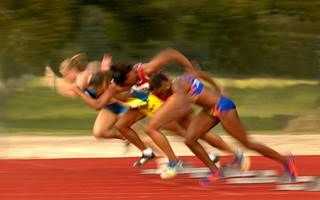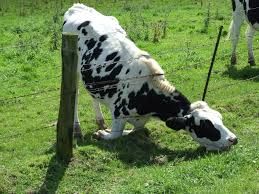Deception
How the Brain Processes Keeping up With the Joneses
The brain may use two systems for social comparisons
Posted October 7, 2014

An old Russian joke tells about a peasant with one cow who hates his neighbor that has two. He goes to a sorcerer to help him relieve his distress. The sorcerer asks, “What do you want me to do about it?” The peasant says, “Kill one of my neighbor’s cows!”
Humans have long known that we judge our own fortune relative to our peers. Not coveting your neighbor’s things is the Tenth Commandment, after all. We also know we’re doing well when our neighbor covets our things.
One question that has received less attention is whether outdoing your peers is the opposite of being outdone, or a different experience entirely. Do we experience this positive feeling on a continuum, where a lot is good, and little is bad, or are two types of feeling—one for positive and another for negative—at work?
Neuroscientists Michael Lindner and Klaus Fliessbach at the University of Bonn in Germany recently addressed this question. They tested twenty medical students on material they were learning in their classes and recorded how many got each question right.
Then, they recruited 31 more medical students for a second part of the study. They showed these students pictures of their peers who had answered the questions so they knew who they were competing with. This second group was then asked the same questions while lying in an MRI scanner.
After each question, the student was told if they got the answer right or wrong. They were also told how many of their peers got the answer right or wrong. This allowed Lindner and Fliessbach to determine if different brain regions became active when you correctly answered a question your peers missed versus when you missed a question your peers got right. Lindner and Fliessbach assumed that the number of peers who got it right would indicate how easy the problem was, and how the student did relative to the group.
When participants outdid their peers, they had higher levels of activity in the nucleus accumbens, a brain region that also activates when we win money, take drugs, or experience schadenfreude. When participants failed but saw that their peers succeeded, they had more activity in the anterior insula, a brain region involved in processing pain. It seems that the brain uses distinct systems for processing better versus worse than average performance.
The study didn’t ask how participants felt when they got beat. Without that information, we can’t determine if people who felt worse also had more insula activity—evidence that would help us understand how insula activity contributes to experience.
The authors did show, however, that participants had more nucleus accumbens activity when they got a problem right that many, rather than few, of their peers missed. This suggests that the nucleus accumbens not only encodes our pleasure at outdoing our peers, but it also tracks how worthy our accomplishment was. Acing a question that stumped our peers may please us more than solving one that everyone gets right.
Lindner’s study shows that different brain networks are used for upward versus downward comparisons. The experiences aren’t two sides of the same coin, but rather one is a penny and the other a dime.

The results could have practical implications. Worrying about a neighbor who has two cows can sting. To shift your brain’s activity, think about a neighbor with no cows.
Image credit: tableatny


